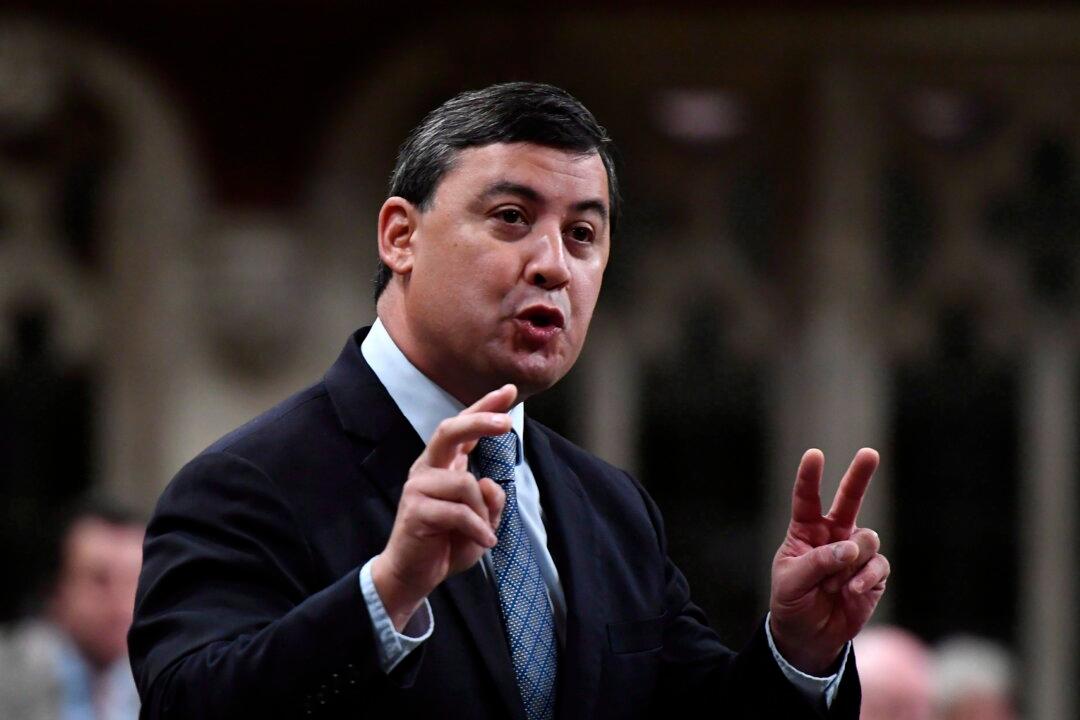A House of Commons committee voted unanimously Wednesday to condemn Beijing’s sanctioning of a member of Parliament and a parliamentary subcommittee.
Members of the Standing Committee on Foreign Affairs and International Development said they “stand in solidarity” with Conservative MP Michael Chong, after Beijing announced sanctions against him and the Commons Subcommittee on International Human Rights on March 27.
Both Chong and the subcommittee have been instrumental in investigating and calling out the human rights abuses of Uyghur Muslims in Xinjiang by the Chinese regime.
Liberal MP Ruby Sahota tabled the motion to “strongly condemn” China’s sanctions, saying they “represent an affront to Canada’s democracy and parliamentary system.”
“These sanctions are nothing more than retaliatory measures taken which I feel are unacceptable and unjustified,” Sahota said during the meeting.
“We think that there should be a united and clear stance taken by parliamentarians, and especially by this committee first and foremost, to condemn this action by China.”
Chong said that although the sanctions will not have any impact on him personally, they are nevertheless an attempt by Beijing to silence Canadian parliamentarians.
“They are an attempt to silence us. They’re an attempt to stop us from speaking up on the violations of international law in the form of the 1948 Genocide Convention that China is perpetrating in its genocide against the Uyghur Muslim minority in Xinjiang province,” he said.
On Feb. 22, MPs voted unanimously to declare the Chinese regime’s persecution against Uyghurs a genocide on a motion tabled by Chong. Prime Minister Justin Trudeau and his cabinet abstained from the vote.
A month later, on March 22, Canada announced sanctions against four Xinjiang officials and one entity in China for “their participation in gross and systematic human rights violations” against the Uyghurs.
Chong stressed that MPs mustn’t allow the Chinese sanctions to silence them and the focus should be on “why we were sanctioned.” He then listed several of Beijing’s rights transgressions, including its abuse of Uyghurs, its violation of the Hong Kong international treaty, its continued persecution of the Tibetan people, its arbitrary imprisonment of Canadians Michael Kovrig and Michael Spavor, its arbitrary imposition of the death penalty on Canadian Robert Schellenberg, and its two-decade imprisonment of Canadian Huseyin Celil.
Liberal MP Sameer Zuberi concurred.
“We have to remain focused on the main issue, which is to reduce harm, which is to save lives, which is to stop rape, torture, forced sterilization, abortion, forced slave labour,” Zuberi said, referring to the abuses of Uyghurs.
NDP MP Jack Harris proposed an amendment to Sahota’s motion to add the sentence: “As parliamentarians, we will continue to actively denounce human rights violations and breaches of international law in keeping with our respect for basic human rights,” and that the motion be reported to the House.
The committee voted unanimously in favour of the amendment.
Bloc MP Stéphane Bergeron said Beijing’s sanctions crossed the line of the fundamental principles of the British parliamentary system.
“If there’s a single rule that is imminent in the British parliamentary system, it is this very ability by parliamentarians to execute their work safe from any pressure,” Bergeron said.
“If we cannot accept this … from the inside, we certainly can’t accept from the outside.”
Conservative MP Garnett Genuis said Beijing’s sanctions are proof that the pressure being put on the regime by Chong and the human rights subcommittee are working.
“Those criticisms are having an impact, and the greater that impact the more likely we’re going to see a change in behaviour,” Genuis said.
Zuberi said Canada needs to continue to raise the alarm against the regime’s crimes against humanity.
“All citizens need to continue to raise the alarm, and everybody has agency. Citizens have agency and their agency is to share what they know with others around them,” he said.
“Be it on social media, be it within their families, be it in their workspaces. That’s a form of activism and a form of forward movement to help what we are all doing here together right now.”





